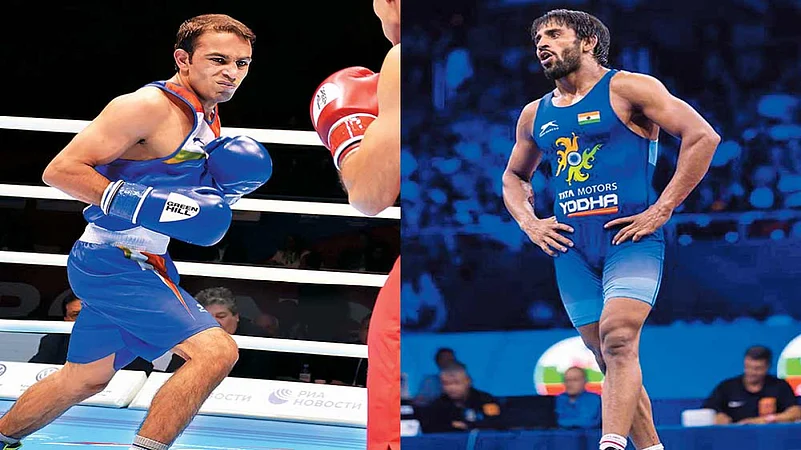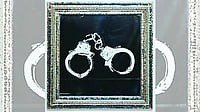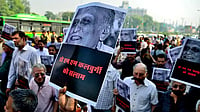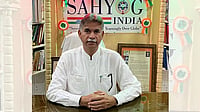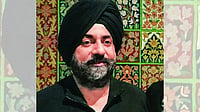Carrying the hopes of over a billion people—the cliché cannot be ignored as Amit Panghal and Bajrang Punia limber up for the much-delayed, pandemic-hit Tokyo Olympics, hopefully starting on July 23. Power sport has never been an Indian strong point, although a few medallions of honour and pride did come by in fits and starts. Seldom has two world number ones given us the best shot for a podium finish even before the Games began. Against this backcloth of history, boxer Panghal—No. 1 in 52kg flyweight—and wrestler Punia, top ranked in 65kg, underscore the changing scenario in world sport. But how did the Indians become serious medal contenders at the Summer Games after a dismal Rio 2016? The answer can be grubbed out of the preps and qualifiers—especially India’s record haul of 15 medals (two gold, five silver and eight bronze) at the Asian boxing championships in Dubai. Isn’t that a clear indication of the promise our pugilists hold out? Tokyo will define the careers of many of them.
To know more, we need to dive into the cradle, the nursery—Haryana, for one. The Haryana factor packs a punch in Indian sports, particularly in disciplines that demand raw, robust power and stamina. Panghal and Punia come from this turf. Panghal’s hometown Rohtak and Punia’s Jhajjar are hardly 40 km apart. Both had a humble beginning and gravitated to sport inspired by their families—Panghal’s brother and Punia’s father were their push factors. For the Punias and Panghals, and many more seeking a career in sports, Beijing 2008 was a catalyst. A nation starved of Olympic success—India returned empty-handed from three successive Games in 1984, 1988 and 1992—was so stoked that accolades and incentives won’t stop pouring for Beijing stars Abhinav Bindra (shooting gold), Sushil Kumar (wrestling bronze) and Vijender Singh (boxing bronze). In rural Haryana, a young boy or girl could hope of something beyond farming.
With the government introducing the Target Olympic Podium Scheme in 2014 and lavishly spending on promising athletes capable of winning international laurels, Haryana’s sportspersons got into the act. As of today, all the wrestlers bound for Tokyo are from the state and three of the five men’s boxers to qualify are Haryanvis. Among them, Punia and Panghal are standouts. The Covid-induced lockdown hit Punia, a three-time world championship medallist and an Asian Games champion, and Panghal, a 2018 Asian Games gold medallist, hard. They were deprived of quality competition. Both had to redraw their plans after Tokyo 2020 was put off by a year.
For the 25-year-old Panghal, 2021 has been a mixed bag. He managed to play quite a few tournaments in France, Spain and Germany. His last outing before the Asian championships in UAE was in the Governor’s Cup in Russia where he clashed against Rio Olympics and world champion pugilist Zoirov Shakhobidin of Uzbekistan. It was the first real test of the year.
An Olympic medal doesn’t come easy and Panghal knows that. Having shifted from 49kg to 52kg in 2019, Panghal made a successful transition. Up against quality boxers like Shakhobidin, Rio bronze medallist Hu Jianguan of China and Cuban boxer Yosbany Veitia, a 2017 world champion, Panghal has consistently managed to punch above his weight. In his first year in 52kg, Panghal became an Asian champion in Bangkok and followed it up with a silver at the world championship in Russia where he lost to Shakhobidin. In December 2020, Panghal went on to win a World Cup gold in Cologne, but Shakhobidin, who has a 3-0 win-loss record, will be the man to beat in Tokyo.
“I am still new to this weight category so haven’t faced some of the boxers even once. I am looking at their videos and trying to understand them. Videos have been of great help. And also in these Covid times, you don’t know how well-prepared or under-prepared a boxer will be before such a big event,” says Panghal.
For his part, Punia, 27, didn’t enter a single competition in 2020. Heir to the London 2012 bronze medallist Yogeshwar Dutt’s legacy in the 65kg weight class, he made a roaring comeback with a gold medal at the Matteo Pellicone Ranking Series in Rome in January 2021. But an elbow injury at the Asian championships in Almaty, where he won the silver, forced Punia to take a break. The Asian championships final was against Japan’s Takuto Otoguro, Punia’s bete noire. He has lost to Otoguro thrice in the finals—twice at the Asian meet and once at the 2018 world championships. “On a given day no one is strong or weak. I take to the mat trusting my training and my analysis of an opponent. COVID-19 hasn’t given me the opportunity to have at least a bout against each of the wrestlers headed for the Olympics. I am sad that the elbow injury forced me to opt out of the bout against Otoguro. It would have been a good test for me before the Games. Moreover, you can’t prepare for one particular rival. What if you don’t get him in the draw?” asks Punia.
Punia’s path to an Olympic gold is full of hurdles. The 2019 world champion Gadzhimurad Rashidov of Russia, who has clinched gold in four of his past five tournaments, Azerbaijan’s Haji Aliyev, the Rio 2016 bronze medallist and a three-time world champion, pose serious threats apart from Otoguro. With weeks left for the Games, Punia is taking no chances. An injury at this stage can upset his dreams. He has decided to skip a ranking tournament in Poland and instead will train in Russia under his personal coach Georgian Shako Bentinidis. “It’s so hard to find sparring partners and training venues. Before the Olympics, I need more training. The past 18 months have been tough. There were neither competitions nor training camps outside. Staying fit was also a challenge before heading for the Olympics,” says Punia, who looks up to 2012 London gold medallist Jordan Burroughs (74kg) of USA and 2016 Rio gold medallist Hassan Yazdani (86kg) of Iran as his heroes.






